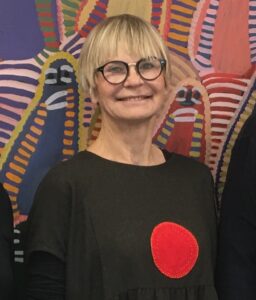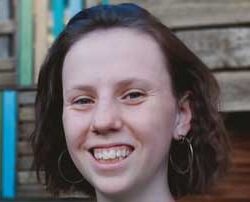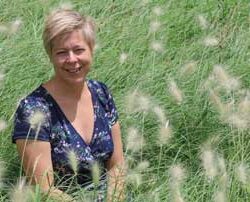‘That was the best lesson ever!’

Diana Dagg’s journey into ethics.
“I have the great pleasure of volunteering as an ethics teacher with my granddaughter’s class at her local primary school in southern Sydney for 30 minutes each week.”
I’m one of thousands of volunteers from all walks of life and all ages who teach ethics in schools across NSW during term time. I initially had some anxiety about taking part, since I hadn’t taught before. Hearing that Primary Ethics offers free training, full lesson materials and ongoing support encouraged me to take that first step to apply. My confidence was boosted during the excellent and thorough training (you can do in-person workshops or online sessions). The ethics curriculum is prepared by experts and reviewed by the Department of Education for age appropriateness.
After passing the assessment and completing Working with Children and Police checks, off I went, with a clear curriculum to follow – but still some nerves. I found, though, that following the advice included with the lesson scripts helped me enormously. And the Primary Ethics team as well as the school made it clear they were always there to help – and they have! A school classroom teacher sits in on my lessons should I need support or advice.
It’s important to me that my grandchildren and their friends have the tools to listen and think carefully about the information and opinions bombarding them from every direction in today’s digital world. These are essential skills as they grow up in our complex and pressurised world. I expect that the skills they’re learning in ethical reasoning will help set them up for life.
My role as the ethics teacher is not to make judgements or give my own opinions, but to encourage questions and reflection by the children themselves. It’s so heartening to watch my Year 5/6 class sharing, thinking, reflecting and listening respectfully to each other on issues such as:
- Should we always respect the beliefs of others?
- What’s the difference between harmless and harmful teasing?
- The nature of knowledge – how do you know what you know?
- Are there some things all humans need in order to live a good and satisfying life?
I’m proud to contribute to my young students’ commitment to consider some huge issues seriously, to listen and accept the range of views held by their peers. The great surprise for me has been that I get as much out of ethics lessons as the children clearly do. I’m constantly learning, as I prepare for my class by reading the background notes and reflecting on my own approach to these issues.
For example, at present I’m taking my class through four lessons on Authority. It’s all about encouraging students to consider whether it’s okay to question a rule or advice or opinion given by someone who is seen as an authority. The students are devouring this topic with great enthusiasm. And I’m proud to announce that it’s helped me to be more analytic and assertive in my everyday life as well.
Another unexpected delight is that the other ethics volunteers at the school and I meet regularly for coffee or after lessons to share and consult and have a laugh. I love feeling part of this team.
More recently I joined another Primary Ethics group, the Classroom Support Team, whose role is to provide support, advice and encouragement to the many ethics teachers. We’re always looking for new Classroom Support Team members. We’d be very happy to talk through this volunteer coaching role with anyone who’s interested.
Both positions are immensely rewarding for me. It’s heartening to know that by encouraging respectful discussion in the classroom, I’m contributing to the ethical growth of the next generation, thus leaving a legacy for the future.
Best of all, it’s simply fantastic when students come up to me after the class and say things like: ‘That was the best lesson ever’ or ‘Can we talk again about this next week?’
Makes me a proud nanny!”



